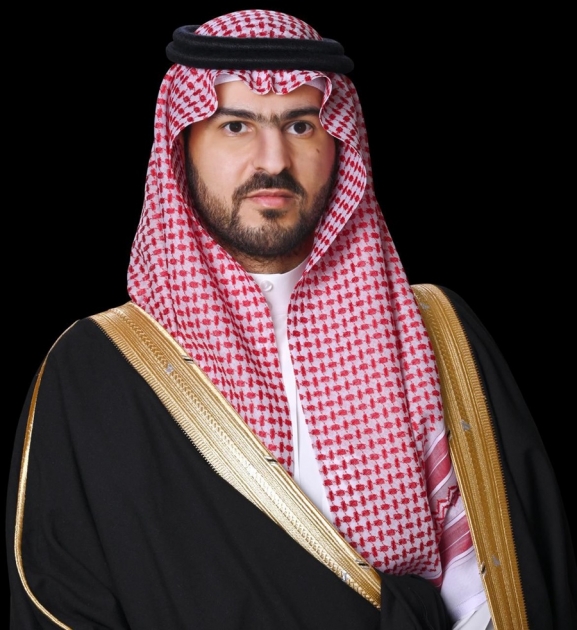
Prince Saud bin Bandar to Patronize Signing of Contract to Link the Gulf Electricity Market with Iraq
His Royal Highness Prince Saud bin Bandar bin Abdulaziz, Deputy Governor of the Eastern Province, will sponsor the signing ceremony for the contract to link the Gulf electricity market with the Republic of Iraq on Wednesday, October 9, at the headquarters of the Gulf Cooperation Council Interconnection Authority (GCCIA) in Dammam.
The ceremony will be attended by Eng. Ahmed Al Ebrahim, CEO of the Gulf Cooperation Council Interconnection Authority, and Eng. Saleh Al Amri, CEO of the GCC Lab.
Eng. Ahmed Al Ebrahim, CEO of GCCIA, highlighted that the project to connect the Gulf electricity market with Iraq marks a significant milestone, creating new opportunities for Gulf electrical interconnection. He noted that the Gulf energy sector continues to evolve, with plans for the interconnection between the GCC countries and Iraq slated for launch in December.
Al Ebrahim emphasized that this project will provide Iraq with a reliable and supplementary source of electricity to meet its growing energy demands. He stated: “By 2025, Iraq will be able to import around 3.94 terawatt-hours of electricity annually from GCC countries, resulting in savings of up to $175 million per year, thanks to competitive prices that are lower than local production costs, which will significantly reduce public expenditure.”
He continued, “The Gulf electricity trading market will serve as a platform for both long-term and short-term energy trading, giving Iraq the flexibility to import energy from multiple countries. This will foster price competition, ensuring access to the best available rates in the electricity market.”
Al Ebrahim further pointed out that this interconnection will strengthen economic ties between Iraq and the Gulf nations through bilateral commercial electricity contracts, applicable in both summer and winter seasons. Additionally, it will promote the sustainability of energy supplies, support local initiatives, and enhance the stability of Iraq's electricity grid by reducing reliance on costly traditional energy sources and optimizing the use of available resources.
He also discussed the project's efforts to upgrade the Control Center systems, which represent a pivotal step in safeguarding the Authority's operations against potential cyber threats. These improvements will not only enhance cybersecurity but also boost system stability, usability, and data analytics. The upgraded system will also enable more efficient management of renewable energy and provide advanced forecasting capabilities for energy fluctuations using artificial intelligence and weather data analysis, all of which will contribute to a more stable and efficient power grid.
The visit also provided an update on the progress of the GCC Lab, which was established in 2016 with funding from several key entities in Saudi Arabia and the Gulf region, including the Saudi Public Investment Fund, Saudi Aramco, Saudi Electricity Company, SABIC, the Royal Commission for Jubail and Yanbu, the Gulf Cooperation Council Interconnection Authority, and King Fahd University of Petroleum and Minerals. The Lab is focused on developing a global network of advanced laboratories that provide testing, inspection, accreditation, and technical services, while supporting research and development efforts.
Eng. Saleh Al Amri, CEO of the GCC Lab, highlighted that, under the direct supervision of the Saudi Ministry of Energy, the GCC Lab has successfully built one of the largest and most advanced energy laboratories in the world. Located in Dammam's Third Industrial City, the facility has a budget exceeding SAR 101 billion. The Lab offers advanced services that aim to localize industries, enhance local content, and build a robust knowledge-based economy. It also plays a vital role in globally qualifying national talents across various technical fields. The Lab has trained over 11,000 individuals in more than 130 global professional certifications, established partnerships with leading manufacturers, service providers, universities, and research institutions, and has played a significant role in certifying hundreds of Saudi and international products entering and leaving Saudi markets. With ongoing support from the Ministry of Energy and shareholders, the GCC Lab is strategically expanding into areas such as industrial services, safety, fire prevention, environmental services, and alternative energy, contributing to the achievement of Saudi Arabia's and the Gulf's long-term strategic vision.
Additionally, the Gulf electricity market management system is grounded in the ‘Gulf Electricity Market Interconnection’ platform's role in managing the electricity market with the Republic of Iraq. This platform, inaugurated last year by His Royal Highness Prince Saud bin Naif bin Abdulaziz, Governor of the Eastern Province, at the headquarters of the Gulf Cooperation Council Interconnection Authority in Dammam, is designed to enhance market efficiency through process automation and real-time information sharing.
The system is instrumental in boosting market efficiency, reducing losses, and increasing transparency by providing comprehensive reports on all market operations. This allows participants to make more informed decisions and adapt to regulatory changes. It also offers flexibility to adjust to new energy market rules and regulations, helping operators stay in compliance with regulatory requirements. Additionally, the system includes modern solutions for billing and managing financial guarantees.
The Gulf electricity market management system will optimize benefits for network operators and market participants by managing electricity flows more effectively, ensuring market stability and balance. It delivers a holistic market view, offering participants real-time data and analytics, enabling them to fine-tune their commercial strategies, and supporting decision-making with detailed forecasts and analyses. The market management system is an essential tool for managing and regulating modern electricity markets, providing a reliable and efficient platform that ensures the smooth and sustainable operation of the GCC electricity market.



























